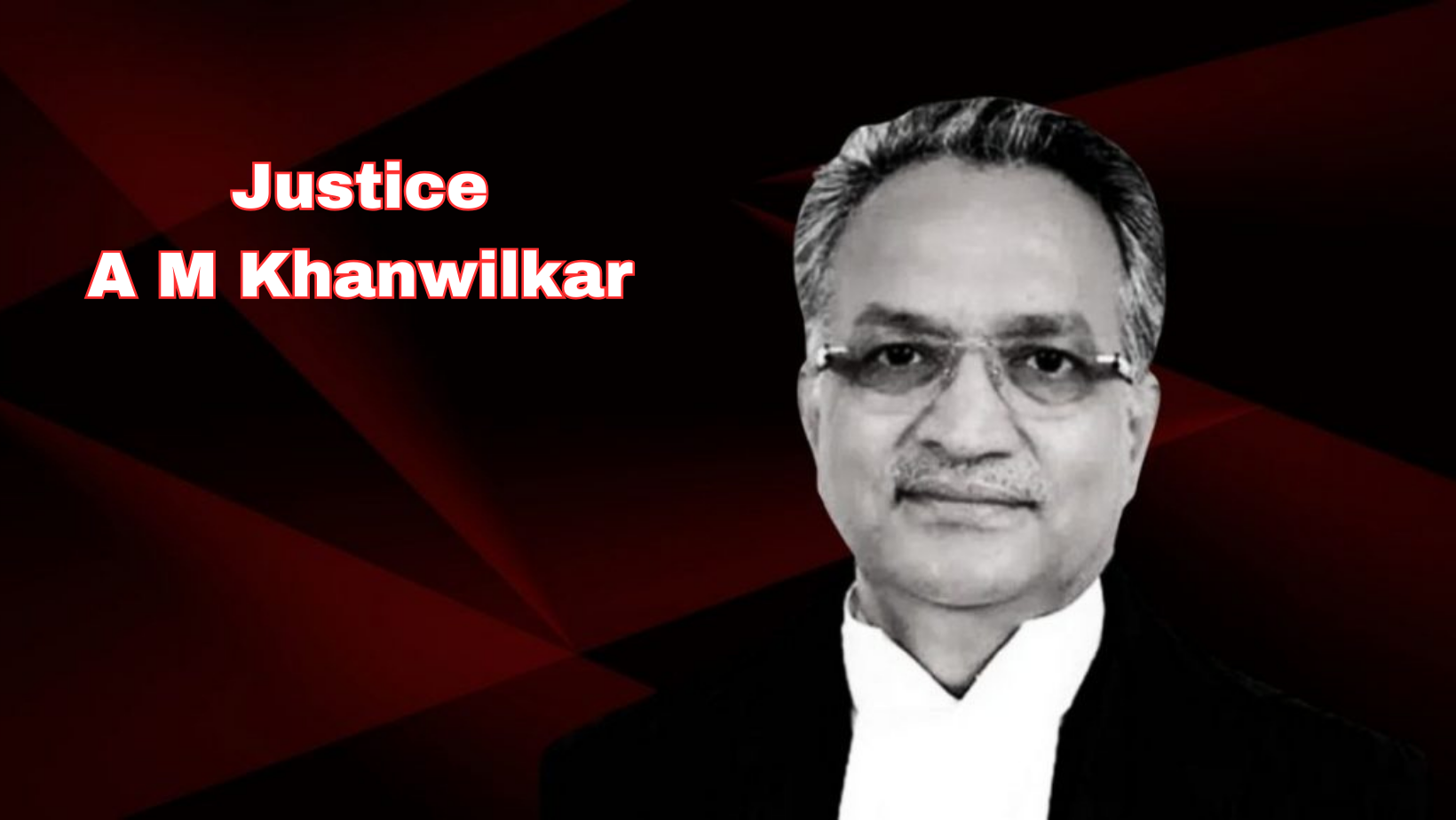Ex-SC Judge Justice AM Khanwilkar Appointed As Lokpal Chairperson

- 28 Feb 2024
Why is it in the News?
Nearly 19 months after he retired as a Supreme Court judge, Justice A M Khanwilkar was appointed the chairperson of the anti-corruption ombudsman Lokpal on Tuesday. The post fell vacant nearly two years ago.
Who is AM Khanwilkar?
- Justice Ajay Manikrao Khanwilkar was a Supreme Court judge between May 2016 and July 2022.
- He has also served as chief justice of the Madhya Pradesh High Court and the Himachal Pradesh High Court and as a judge of the Bombay High Court.
- Recently appointed as the Chairperson of the anti-corruption ombudsman Lokpal on Tuesday.
- The appointment came nearly two years after the post fell vacant.
- Khanwilkar was elected for the post following discussions by a high-level committee, which included:
- Prime Minister Narendra Modi
- Chief Justice of India DY Chandrachud
- Leader of the Opposition in Lok Sabha, Adhir Ranjan Chowdhury
- The Lokpal has been functioning without its permanent chief since the conclusion of Justice Pinaki Chandra Ghose's term on May 27, 2022.
About Lokpal:
- The Lokpal is a statutory body established under the Lokpal and Lokayuktas Act of 2013.
- Its primary mandate is to investigate allegations of corruption against certain public officials and handle related matters.
- The organizational structure of Lokpal includes a chairperson and a maximum of eight members.
- The chairperson must be a former Chief Justice of India, a former Judge of the Supreme Court, or an eminent individual meeting specified eligibility criteria.
- Half of the maximum eight members are judicial members, who must be former Judges of the Supreme Court or former Chief Justices of High Courts.
- Additionally, a minimum of fifty percent of the members are drawn from SC/ST/OBC/minority backgrounds and include women.
How are Members Appointed?
- The President of India appoints the Chairperson and Members based on recommendations from a selection committee.
- This committee comprises the Prime Minister as Chairperson, the Speaker of Lok Sabha, the Leader of Opposition in Lok Sabha, the Chief Justice of India or a nominated Judge, and one eminent jurist.
- Members serve a term of five years or until they reach 70 years of age, whichever comes first, starting from the date they assume office.
- The Chairperson receives salary, allowances, and other benefits equivalent to those of the Chief Justice of India.
- Similarly, Members receive salary, allowances, and other benefits equivalent to those of a Judge of the Supreme Court.
Jurisdiction:
- The Lokpal has the authority to investigate allegations of corruption against current or former Prime Ministers, Union Ministers, Members of Parliament, and officials from various levels of the Union Government categorized under Groups A, B, C, and D.
- Its jurisdiction extends to include chairpersons, members, officers, and directors of entities established by parliamentary acts or financed by the Union or State government, as well as any organization receiving foreign contributions exceeding Rs 10 lakh.
- However, there are exceptions regarding the Prime Minister's jurisdiction. The Lokpal cannot investigate allegations related to international relations, external/internal security, public order, atomic energy, and space. Moreover, complaints against the PM require approval from at least two-thirds of the Lokpal's members before initiation of an inquiry.
Powers of Lokpal:
- The Lokpal possesses the authority to oversee and issue directives to the Central Bureau of Investigation (CBI).
- Once the Lokpal has referred a case to the CBI, the investigating officer cannot be transferred without the Lokpal's approval.
- It holds the power to authorize the CBI to conduct search and seizure operations related to these cases.
- The Inquiry Wing of the Lokpal is endowed with powers akin to those of a civil court.
- In specific circumstances, the Lokpal can confiscate assets, proceeds, receipts, and benefits obtained through corrupt means.
- It is empowered to recommend the transfer or suspension of public servants implicated in corruption allegations.
- The Lokpal can issue directives to prevent the destruction of records during the preliminary inquiry phase.
- As per Section 48 of the Act, the Lokpal is mandated to submit an annual report on its activities to the President, which is subsequently laid before both Houses of Parliament.
